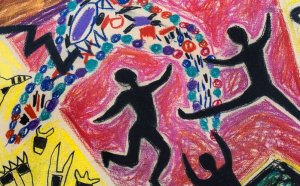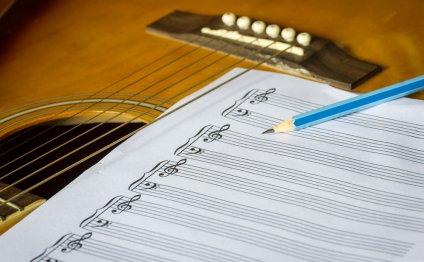
General Music lesson plans
GRADE LEVEL
LESSON LENGTH
one or two 45 minute classes
TYPE OF CLASS
General Music Education
MAJOR GOAL OF LESSON:
To introduce the Hawaiian culture through the experience of luau and the exploration of dancing a hula;
CURRICULUM FRAMEWORKS ADDRESSED:
Music, PreK-12 Learning Standards
Standards 1, 2, 4, and 5
1.1 Sing independently, maintaining accurate intonation, steady tempo, rhythmic accuracy, appropriately produced sound (timbre), clear diction, and correct posture.
1.5 Sing in groups, blending vocal timbers, matching dynamic level, and responding to the cues of a conductor.
1.8 Sing music representing diverse genres and cultures, with expression appropriate for the work being performed, and using a variety of languages.
2.1 Demonstrate and respond to: the beat, division of the beat, meter, and rhythmic notation, including half, quarter, eight, and sixteenth notes and rest.
2.2 Use a system to read and sing at sight simple pitch notation in the treble clef
2.9 In a choral/instrumental ensemble or class: sight read, accurately and expressively, music with a difficult level of 2 on scale of 1 to 6.
4.1 Improvise
answers
in the same style to given rhythmic and melodic phrases
4.3 Improvise and compose simple rhythmic variations and simple melodic embellishments on familiar melodies.
4.5 Create and arrange short songs and instrumental pieces within teacher©specified guidelines
5.2 Listen to and describe aural examples of music of various styles, genres, cultural and historical periods, identifying expressive qualities, instrumentation, and cultural and/or geographic context.
5.6 Describe and demonstrate audience skills of listening attentively and appropriately in classroom, rehearsal, and performance settings.
STANDARDS FOR ALL TEACHERS ADDRESSED:
a) Plans Curriculum and Instruction.
b) Delivers Effective Instruction.
c) Manages Classroom Climate and Operations.
d) Promotes Equity
e) Meets professional Responsibilities
INSTRUCTIONS OBJECTIVES:
To understand a little bit on the back ground behind the hula and luau, to understand and learn a simple Hawaiian song and Hula and to apply what they just learned in dance/singing improvisational group activity.
MATERIALS AND EQUIPMENT NEEDED:
Classroom
Chalkboard
CD player
Computer
Notes for lecture
Recordings if Hawaii music
Recording of
Pearly shells
by Webley Edwards and Leon Pober (either playing from the computer or the cd player, another option would be to bring in a musician who plays the ukele to play it or to just play it yourself on the piano or guitar)
Previous knowledge of the hula steps
Handout with the song for group activity
Audio recorder
Blank tape
PROCEDURES AND TEACHING STRATEGIES:
Opening:
1) Begin class by having the students listen to some Hawaiian music and try to place ii in the world. Additionally, explore why they believed it was from Hawaii and not anywhere else.
Detail Steps:
2) Continue the class by exploring with them the aspects of Hawaii, the Hawaiian culture, the Luau and the Hula
3) Explain to them that they will be learning a Hula and instruct them the dance
4) Teach the following steps noting that the kaholo (step to right and follow with the left, step to right and follow with the right and the reverse) side step is done throughout the hula.
Instructions for Hula:
a) During the words
pearly shells
cup both hand right then left then the other way changing with the direction of the kaholo
b) During
by the ocean
ocean motion
left to right hand over hand and them the other direction in step with the kaholo
c) During
shinning in the sun
hands lift from either side up, meat on top and sway on top left to right above the head
d) During
covering the shore
land motion
lower hand to waist height and sweep ground with flat palms left to right and right to left
e) During
when I see them
looking motion
one hand place on the side of the face with a straight palm with the other extended up and out with the straight palm, again both directions
f) During my heart tells me
me motion
elbows straight out, hands at chest meeting fingertip to fingertip.
g) During
that I
extend your arms forward
h) During
love you
do the
love motion
cross arm over arm on chest
i) During
more than all do
swoop motion
arms straight out with palms down©lower to cross arms on bottom and top and end up with straight arms again and palms up
f) During
those little pearly shell
do original cupped hands left to right them back again.
5) It is best to teach the hula by saying the words and the motions together and then adding in the kaholo step. Remember to note that the hands and face are the focus of the Hula. Only the hips and legs should move and not the shoulders.
At this point, depending on the progress of the class, one can either continue or wait until next period to develop further
6) Once familiar with song and hula, continue the lesson by having the students improvise there own hula using the
Pearly shells
tune in group, encouraging new words and new dance steps
Closing:
7) Lesson concludes with students presenting their dances and hearing themselves on the tape recorder at the end of the class.
GRADING RUBRIC FOR THE OBSERVED LESSON:
There should be some guidelines for evaluating performance. It is best to set three standards for grading the performance: above average, average and below average.
MEANS OF EVALUATION AND ASSESSMENT OF STUDENT PROGRESS
A student's performance rubric should be assessed based on the following questions:
1) Was there participation satisfactory?
2) How well they seem to have a grasp on the concept involved?
3) How did they follow directions correctly?
4) What was the their level of group cooperation?
5) How much did they enjoy the experience?
6) How much did they learn form the experience?
POTENTIAL PITFALL, OBSTACLES AND PREVENTIVE MEASURES
The most challenging part of this activity will be learning the arm motions and doing them together with the kaholo. The kaholo itself as well as the song are very simple but coordinating them maybe challenging for some. If this is the case, it might be best to teach the motions first using only the words, then adding the melody with the motions and then adding the kaholo at the end.
This lesson may also prove challenging to those students who for some reason or another have trouble moving as freely as other students. It is also fine for them to just sit and do the arm motions with the class or as the problems arise modify the movements themselves depending on the students limitations
YOU MIGHT ALSO LIKE
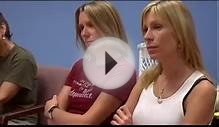
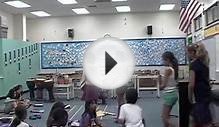
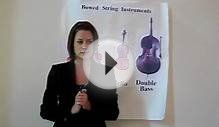
Share this Post
Related posts
Music lesson plans for Kids
Music not only has the power to stimulate the mind, enrich the heart and soothe the soul; it also helps you meet educational…
Read MoreNative American Music lesson plans
Lesson Four- The Strength of Native American Music The following lesson is designed to be used after viewing all or part…
Read More

